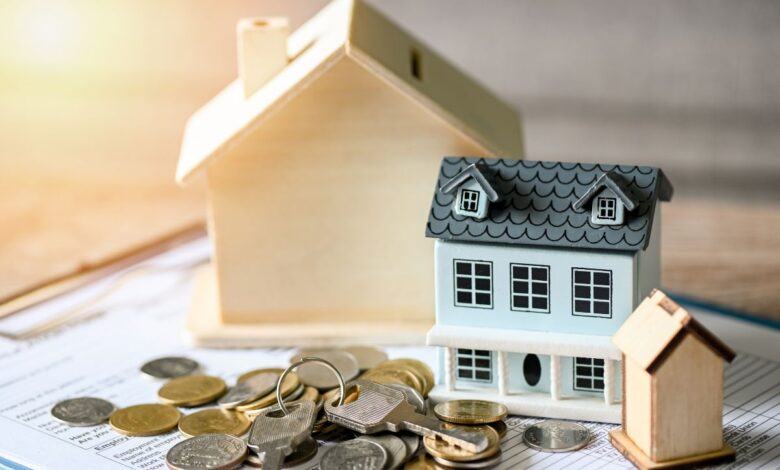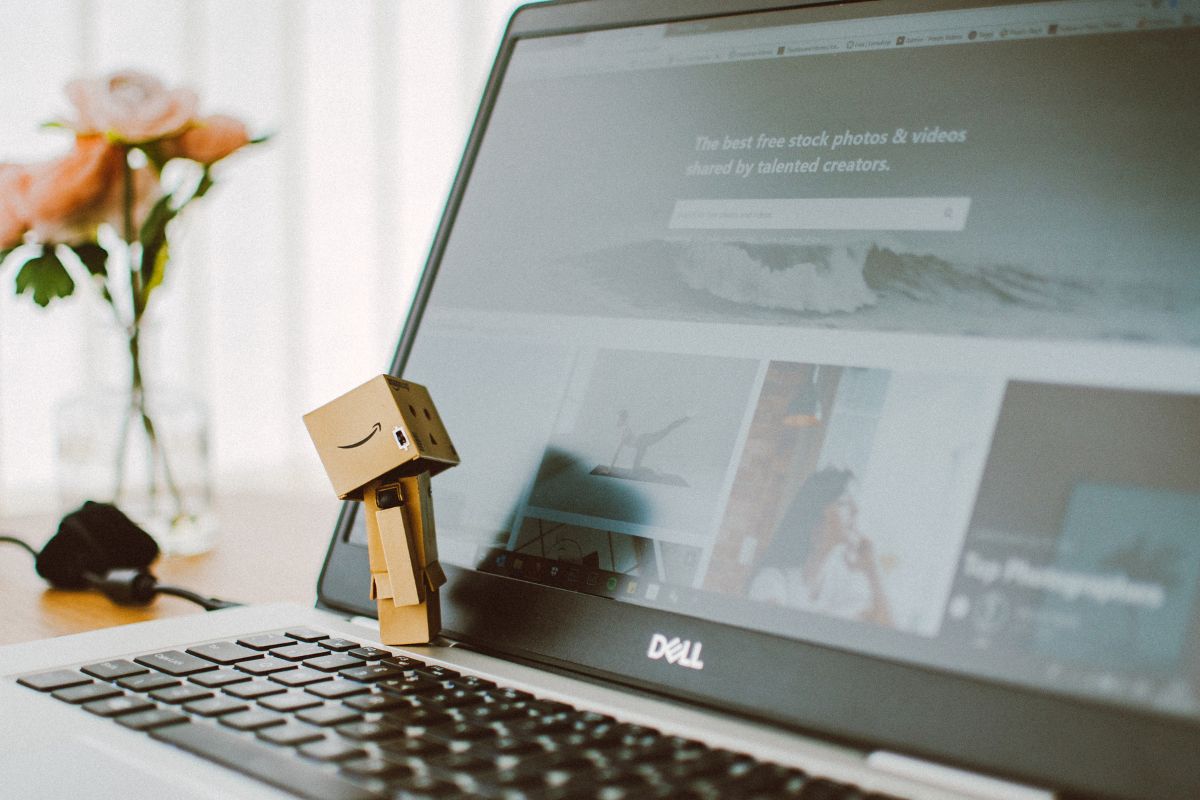Can you use a personal loan to buy a house?

Picture this: You’re scrolling through your social media feed and you see a post from that one friend who always seems to be living their best life. This time, they announced that they just bought a house with a personal loan! Your initial reaction might be disbelief or even envy – how is it possible for someone to buy a house without the help of traditional mortgage lenders? But before you start filling out an application for your own personal loan, it’s important to understand the reality of using this type of financing for such a large purchase.
While it may sound like a dream come true – getting approved for a personal loan and immediately becoming a homeowner – the truth is that there are plenty of factors to consider before taking on such a significant financial commitment. In this article, we’ll explore whether using a personal loan to buy a house is actually feasible, what potential drawbacks you should keep in mind, and some alternative options if this route doesn’t seem like the right fit for you. So grab your calculator and let’s dive into the world of unconventional home buying!
Understanding Personal Loans And Their Purpose
When it comes to financing a new home, many people wonder if they can use a personal loan to buy a house. Personal loans are typically used for things like consolidating debt or paying for unexpected expenses, but some might consider using one as a way to fund their home purchase. However, it’s important to understand the purpose of personal loans and how they differ from traditional mortgage loans.
Firstly, personal loans are unsecured, meaning that there is no collateral involved in securing the loan. This makes them riskier for lenders and often results in higher interest rates than secured loans like mortgages. Additionally, personal loans usually have shorter repayment terms than mortgages which can make monthly payments much more expensive.
On the other hand, mortgages are specifically designed for purchasing homes and are secured by the property itself. They tend to have longer repayment periods and lower interest rates compared to personal loans. While personal loans may be tempting because of their flexibility and ease of access, taking out such a large amount of money without any security could lead to financial hardship down the road.
In conclusion, while it’s technically possible to use a personal loan to buy a house, it’s not necessarily the best option available. Understanding the difference between personal loans and mortgages is crucial when deciding on financing options for your home purchase. Next up we’ll explore these differences further so you can make an informed decision about what type of loan will work best for you.
The Difference Between Personal Loans And Mortgages
When it comes to financing a home, many people wonder if they can use a personal loan instead of a mortgage. The answer is yes, but there are some important differences between the two types of loans that should be considered before making a decision.
Firstly, personal loans tend to have much higher interest rates than mortgages. This means that borrowing money through a personal loan could end up costing you significantly more in the long run. Additionally, personal loans typically have shorter repayment terms than mortgages, which may make monthly payments unaffordable for some borrowers.
On the other hand, mortgages generally come with lower interest rates and longer repayment periods. They’re also secured by the property being purchased, which reduces the risk for lenders and can result in better terms for borrowers.
In summary, while it’s possible to buy a house using a personal loan, it may not always be the best choice financially. Factors such as your credit score, income level, and overall financial situation will ultimately determine whether or not this option makes sense for you. With that said, let’s take a closer look at some key factors to consider when deciding whether to use a personal loan for buying a house.
Factors To Consider When Using A Personal Loan For Buying A House
When it comes to buying a house, personal loans may not be the first option you think of. However, if you’re considering this route, there are several factors to keep in mind. First and foremost, take a close look at your credit score and financial history. Personal loans typically come with higher interest rates than mortgages, so having good credit can help secure a lower rate. Additionally, consider how much you’ll need to borrow and make sure it’s enough for the down payment and other associated costs.
Another factor to weigh is the term length of the loan. While personal loans often have shorter terms than mortgages, they also usually come with fixed repayment schedules that can be more rigid than those associated with home financing options. You’ll want to ensure that you can comfortably afford the monthly payments on top of any existing debt obligations or expenses.
Ultimately, whether or not a personal loan is right for purchasing a house depends largely on your individual circumstances and priorities. In the next section, we will explore some pros and cons of using a personal loan for this purpose.
Pros And Cons Of Using A Personal Loan For A House Purchase
Using a personal loan for purchasing a house is a hotly debated topic. Some people argue that it’s an excellent idea as it allows them to buy their dream home without waiting years to save up enough money. On the other hand, others believe that taking out a personal loan for buying property puts one in debt and may lead to financial instability.
Let’s take a closer look at the pros of using a personal loan for buying a house. Firstly, if you have good credit, then you can get lower interest rates than traditional mortgages. Secondly, there are no restrictions on how you use your funds; you can use it to purchase any type of property, be it new or old. Lastly, personal loans offer flexibility in repayment terms allowing borrowers to choose from fixed-rate or variable-rate options.
However, there are also some cons associated with this option. The foremost disadvantage is the high-interest rates charged by lenders making this financing method more expensive than traditional mortgage loans in the long run. Moreover, since these loans typically come with shorter repayment periods than conventional mortgages, monthly payments tend to be much higher too.
Getting a personal loan might sound like an attractive prospect initially when considering purchasing real estate property; however, before opting for this financing route carefully weigh both its advantages and disadvantages against alternatives available such as FHA or VA loans which we will discuss next.
Alternative financing options exist for those who want to buy homes but do not qualify for traditional methods such as bank mortgages or have less-than-perfect credit scores- these include Federal Housing Administration (FHA) Loans and Veterans Affairs (VA) Loans designed specifically for military personnel wanting homeownership opportunities outside regular housing market channels.
Alternative Financing Options For Buying A House
Looking for alternative financing options when buying a house can be overwhelming. However, it’s essential to explore them to find the best fit for your financial situation. One option is FHA loans that offer low down payment options and are backed by the government. Another option is VA loans, available exclusively to veterans and their families, providing zero percent down payments with no private mortgage insurance required. Additionally, conventional loans from banks or credit unions may require higher credit scores but can have lower interest rates.
Considering all these choices helps you make an informed decision on which loan fits your needs best. It’s important not to overlook other factors such as closing costs, interest rates, and repayment terms while exploring alternatives. Moreover, there are additional resources like grants offered by local governments or non-profits that could help cover some of the expenses associated with purchasing a home.
In conclusion, taking the time to research different financing options before settling on one can save money in the long run. By weighing out pros and cons and comparing each choice’s benefits against others will allow you to identify which alternative has more advantages compared to others. Ultimately, finding suitable financing for your dream home takes effort but ensures secure ownership at affordable prices without risking unnecessary debt burdens in the future.
Frequently Asked Questions
What Is The Maximum Amount Of A Personal Loan That Can Be Used For Buying A House?
Did you know that personal loans can be used to purchase a house? It’s true! However, the maximum amount of a personal loan that can be used for buying a house varies depending on several factors.
Firstly, it is important to note that lenders typically offer personal loans with lower limits than other types of loans such as mortgages. The maximum limit for a personal loan ranges from $1,000 to $100,000 or more depending on the lender and your creditworthiness.
When considering using a personal loan for purchasing a house, keep in mind the following:
- Personal loans usually have higher interest rates compared to traditional home mortgage loans.
- You may need collateral (such as another property) to secure a larger loan amount.
- Loan repayment terms are shorter than those of traditional mortgage loans.
- Some lenders may require proof of income before approving your application.
- Always compare interest rates and fees from different lenders before making any decisions.
In summary, while personal loans can be an option for buying a house, they may not always be the most practical choice due to their limitations. If you decide this is the way forward, ensure you do thorough research beforehand and shop around for the best deal possible.
Can A Personal Loan Be Used For A Down Payment On A House?
When it comes to purchasing a house, many people think of taking out a mortgage. However, some may not have enough savings for the down payment or closing costs. This is where personal loans come in handy. But can you use a personal loan for a down payment on a house?
The answer is yes, but there are some things to consider. First, personal loans generally have higher interest rates than mortgages. So while they can be used for a down payment, you will end up paying more in interest over time. You also need to make sure that your lender allows the use of personal loans for this purpose and that you can afford both the loan payments and the monthly mortgage payments.
Another thing to keep in mind is that lenders prefer borrowers who put down at least 20% of the purchase price as a down payment. If you only put down 5-10%, you’ll likely have to pay private mortgage insurance (PMI), which adds an additional cost to your monthly mortgage payments.
In summary, using a personal loan for a down payment on a house is possible, but it’s important to weigh the pros and cons before making any decisions. Make sure you understand all the associated costs and risks involved with taking out a personal loan and talk to your lender about your options. With careful planning and consideration, you can find the best way to finance your dream home without breaking the bank!
How Does Using A Personal Loan For A House Purchase Affect Credit Score And Credit History?
Using a personal loan for a house purchase may seem like an easy way to get the funds you need, but it can have consequences on your credit score and credit history. Firstly, taking out a personal loan will increase your debt-to-income ratio, which is one of the factors lenders use to determine how much they are willing to lend you. This means that if you apply for a mortgage after taking out a personal loan, you may be offered less favorable terms or even denied altogether.
Furthermore, using a personal loan to buy a house could negatively impact your credit score. Your credit utilization rate will increase as soon as you take out the loan since it adds to your outstanding debt. If you miss any payments or make late payments towards the loan, this could further damage your credit score. Additionally, having multiple debts can make it more difficult to manage your finances effectively and lead to missed payments.
It’s essential to consider all of these factors before deciding whether using a personal loan for a house purchase is right for you. While there may be some advantages such as faster access to cash than traditional financing options, borrowers must weigh these benefits against potential drawbacks carefully. Ultimately, managing your finances responsibly and seeking professional advice from financial advisors can help ensure that your home-buying journey remains financially healthy without damaging your overall financial well-being in the long run.
Are There Any Tax Benefits To Using A Personal Loan For Buying A House?
Looking to buy a house but wondering if it’s possible using a personal loan? While the idea may seem feasible, there are several factors you need to consider before making such an investment. Firstly, let me start with some suspense and tell you that there aren’t any direct tax benefits of using a personal loan for buying a house.
However, here are three things worth knowing about:
1) Tax deduction on interest: If you take out a mortgage loan instead of a personal loan, you can claim up to Rs. 2 lakhs as deductions under Section 24B towards the interest paid on your home loan.
2) Loan repayment tenure: Personal loans generally have shorter repayment tenures than home loans. With home loans offering longer tenures (up to 30 years), it becomes easier for borrowers to repay their debts in small monthly installments while enjoying tax benefits at the same time.
3) Down payment requirement: When purchasing property through personal loans, lenders usually require larger down payments than when taking out home loans. This means that buyers will have to pay more upfront costs which could impact their finances negatively.
while using a personal loan is not ideal for buying property due to higher interest rates and lack of direct tax benefits, one should carefully assess other options like getting a traditional mortgage or exploring government schemes like Pradhan Mantri Awas Yojana (PMAY). Ultimately, it all boils down to what suits your financial situation best!
Can A Personal Loan Be Used For A House Purchase In All States Or Only Certain Ones?
Looking to buy a house but don’t have the funds for it? A personal loan might be an option. But what if you live in a certain state – can you still use a personal loan to purchase a home there?
Firstly, it’s important to note that while personal loans are typically used for smaller purchases like cars or vacations, they can technically be used for anything – including buying a house. However, whether or not you’ll be able to use one depends on your specific situation and where you live.
Some states may have restrictions on using personal loans for real estate purposes. For example, some lenders may not allow borrowers to use their personal loans as down payments on homes. Additionally, certain states may require different documentation or proof of income before approving a loan for this purpose.
That being said, many states do allow the use of personal loans for purchasing homes. It ultimately comes down to doing your research and finding out what options are available in your area. Don’t forget to compare rates and terms from multiple lenders to ensure you’re getting the best deal possible.
So if you’re considering using a personal loan to buy a house, make sure to check with local laws and regulations first. While it may seem like an unconventional route, it could certainly help make homeownership more attainable in the long run without having to wait years until saving up enough cash.
In conclusion
So, can you use a personal loan to buy a house? The answer is yes, but it’s not always the best option. Personal loans are typically unsecured and have higher interest rates than mortgages. However, if you have good credit and only need a small amount of money for a down payment or closing costs, a personal loan could be an alternative solution.
Before deciding on using a personal loan for buying a house, consider your financial situation and long-term goals. Are you able to make monthly payments on both the personal loan and mortgage? Will taking out a personal loan affect your ability to qualify for a mortgage in the future? Asking yourself these questions can help determine whether this unconventional financing method is right for you. Ultimately, with careful consideration and planning, using a personal loan may provide relief for those who struggle to secure traditional financing options when purchasing their dream home.




